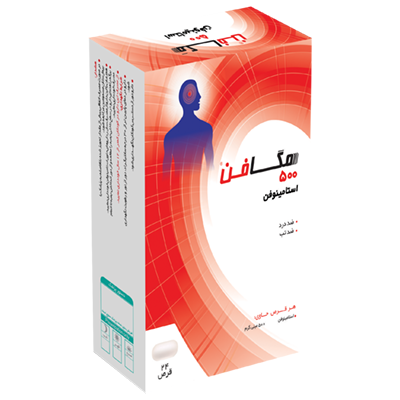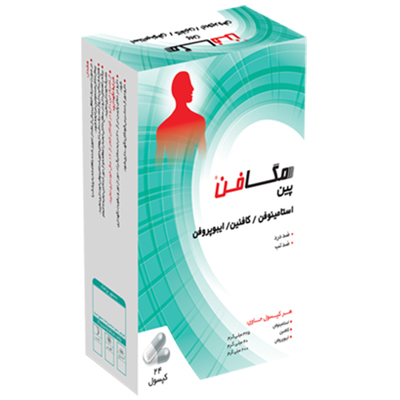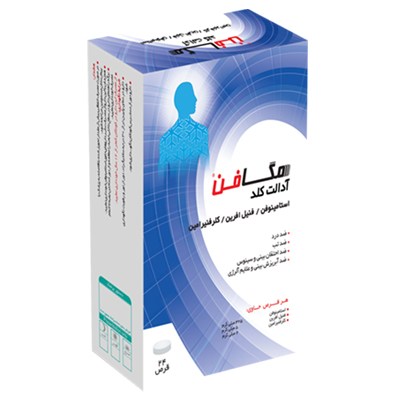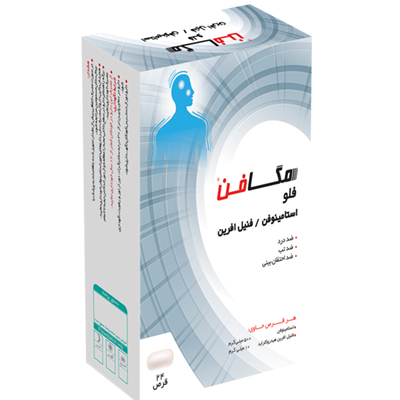Psoriasis is a chronic autoimmune disease in which the immune system mistakenly attacks healthy skin cells. This reaction leads to the rapid proliferation of epidermal cells, creating thick, red, scaly lesions.
Genital psoriasis is a lesser-known but highly influential form of the skin disease psoriasis. This chronic, inflammatory condition, affecting a sensitive and stressful area, often has an impact beyond physical symptoms, affecting the psychological, sexual, and social aspects of men's lives.
Symptoms of male genital psoriasis
Symptoms of male genital psoriasis include redness and inflammation without thick scaling (unlike plaque psoriasis), severe burning, itching, discomfort during sexual contact or sweating, and it is often confused with fungal or bacterial infections.
Moderate to severe itching, sometimes to the point of disturbing a person's sleep, and moist, shiny patches that, contrary to popular belief, do not improve with regular moisturizing creams are other symptoms of penile psoriasis.
Compared to fungal diseases, in psoriasis of the genital area in men, the lesion border is more clearly defined and the surface is smoother. Negative reactions to antifungal creams are common in patients with this condition. Since the genital area is very sensitive, many topical medications commonly used in other forms of psoriasis cause irritation or burning in genital psoriasis in men. Treatment requires careful selection and the use of steroid-free products or lower doses.
Penile psoriasis is a specific and challenging form of inverse psoriasis. This type of disease may appear in the following areas:
- Penis (shaft or head of the penis)
- Inguinal region (groin)
- Scrotal skin
- Areas around the anus
Given that male genital psoriasis has a direct impact on marital relationships and individual self-esteem, it is better for the affected person to discuss this issue with his partner with the help of a counselor and to control and manage this condition in complete peace of mind under the supervision of a specialist. Avoiding self-medication or using general skin medications is another point that people should observe during this disease. Overall, genital psoriasis places a great burden on the patient, not only physically, but also psychologically and socially. In the rest of the article, we will discuss its diagnostic and therapeutic aspects in more detail.
Genital psoriasis type
Among Different types of psoriasisInverse psoriasis has the greatest clinical and clinical overlap with genital psoriasis in men. This overlap is evident not only in the location of lesions but also in the inflammatory pattern and treatment. Because of the delicate, moist, and sensitive nature of these areas, symptoms of the disease in this area are often more complex, bothersome, and psychologically disruptive.
Unlike plaque psoriasis, inverse psoriasis, especially penile psoriasis, does not have thick silvery scales. Also, due to friction and high humidity, inflammation is usually more severe and triggered more quickly.
How genital psoriasis of the penis differs from other forms of dermatitis
Unlike other dermatitis, genital psoriasis in men usually appears without thick scales because the genital area is moist and soft. This feature can be confusing to diagnose. Male genital psoriasis may be confused with the following diseases due to their clinical similarities:
- Allergic or irritant contact dermatitis: This condition is caused by contact with detergents, latex condoms, lubricants, or tight clothing.
- Candida fungal infection: Causes severe redness and itching, especially in uncircumcised men or those who sweat a lot.
- Seborrheic dermatitis: May appear in the male genital area with fine scaling and mild inflammation.
- Atopic eczema: It mostly occurs in people with a family history of allergies and begins in childhood. It is accompanied by dryness and itching.
- Lichen planus or lichen sclerosus: Autoimmune diseases that are accompanied by white spots, itching, and sometimes scarring.
Exacerbating and triggering factors for genital psoriasis
Have you ever wondered why some days the symptoms of genital psoriasis in men are worse, even for no apparent reason? The answer is that the enemy is within; psychological stress, constant friction, constant humidity, and excessive sweating are just some of the factors that trigger this condition. Sexual activity also becomes a source of pain and anxiety in these conditions. Wearing tight clothing irritates the skin and psoriasis of the penis, causing double irritation.
Ways to diagnose genital psoriasis in men
When a person experiences symptoms of inflammation, itching, or shiny red patches in the genital area, their first concern is usually the nature of the lesions. Is this just temporary sensitivity? Or is it a sign of a chronic condition such as male genital psoriasis? In many cases, a purely clinical diagnosis, based on superficial observation, is not sufficient. Uncertainty in diagnosis can lead to inappropriate medication, worsening of symptoms, and in some cases, psychological and social harm.
This is where modern diagnostic techniques come into play; precise, scientific tools to separate truth from suspicion.
- Biopsy (Skin biopsy for psoriasis), as a cornerstone of accurate diagnosis, allows for the identification of specific inflammatory patterns by microscopic examination of cellular structures.
- Dermoscopy, a noninvasive but advanced technique that uses magnification and special lighting to reveal details of vascular and epidermal structures that are not visible to the naked eye, is considered a key tool, especially in differentiating between male genital psoriasis and other chronic skin lesions.
- Additionally, complementary tests such as fungal culture, stained histology, and even immunological evaluations help to draw a precise map of the nature of the disease. Only with such tools can the course of treatment be determined with confidence and repeated trial and error be avoided.
Non-drug treatment options for genital psoriasis in men
Recurrent inflammation, chronic itching, and extreme irritability in a sensitive area are enough to challenge a man's daily comfort and sexual confidence. But what is often overlooked is the vital role that non-pharmacological care plays in controlling penile psoriasis.
Excessive focus on medication and ointments, without paying attention to the basic principles of hygiene in these areas, can reduce the effectiveness of treatment and make the disease more chronic. A warm, humid environment, without proper ventilation, and constant friction provide a suitable environment for this condition to flare up. In these conditions, even the strongest medications will not be as effective without environmental care.
Exacerbation of genital psoriasis symptoms in men is often caused by neglecting details that may seem insignificant at first glance, such as the type of underwear, the quality of detergents, or the way the skin is dried. The use of scented soaps, synthetic fabrics, and tight clothing only accelerate inflammation.
On the other hand, lifestyle modification and careful and conscious hygiene can not only prevent acute attacks, but also relieve the disease. In general, observing the following can be effective in reducing inflammation and controlling this condition:
- Gently wash the genital area with lukewarm water and unscented, pH-balanced detergents.
- Avoiding perfumed, alkaline, or antibacterial soaps that disrupt the skin's natural balance.
- Keeping the genital area dry with a soft towel without rubbing vigorously
- Wearing cotton, light, and loose underwear to reduce friction and allow for proper ventilation.
- Wearing clothes that allow the skin to breathe and avoiding tight or plastic clothing
- Changing underwear regularly, especially after sweating or exercising.
- Avoid using perfumed products, powders, or deodorants in the genital area.
- Avoiding alcohol, increasing antioxidant intake, and maintaining a healthy weight can have positive effects.
Drug treatment for male genital psoriasis
Is it? Complete cure for psoriasis is certain.This is a question we have addressed in detail in another article, but here are some scientifically proven and targeted solutions. Short-term use of low-potency corticosteroids can control the inflammation of genital psoriasis and relieve acute symptoms in a short period of time, without causing serious damage to the skin.
One of the best types of corticosteroid medications for controlling genital psoriasis, Megacort ointment It contains the active ingredient mometasone furoate. This ointment, with its high anti-inflammatory power and good absorption, effectively reduces inflammation and itching, and due to its moderate strength and relative safety, it is considered a suitable option for use in sensitive areas such as the genital area.
For long-term use or in highly sensitive areas, doctors turn to calcineurin inhibitors such as tacrolimus and pimecrolimus; effective options with a lower risk of atrophy and high efficacy in suppressing overactive immune responses.
However, in cases where male genital psoriasis is severe and does not respond to topical treatments, the treatment pathway should enter the systemic phase. Methotrexate, cyclosporine, and newer biologics are used, under close medical supervision, for sustained and targeted control of inflammation. These drugs regulate the function of the immune system and, in resistant or chronic cases, are a turning point in improving the patient's quality of life.
Using unscented moisturizing gels, cold compresses, and avoiding frequent contact can reduce inflammation. With proper diagnosis and appropriate treatment strategies, genital psoriasis can be controlled and managed. This process should always be done under specialized medical supervision so that the effectiveness of the treatment and possible side effects can be closely monitored and treatment modifications can be made if necessary.
Conclusion | Male genital psoriasis
Genital psoriasis in men, although neglected, is manageable. A comprehensive approach that includes treatment Treatment of this disease requires a comprehensive approach that is not limited to drug therapy alone. Maintaining genital hygiene, wearing appropriate clothing, and controlling aggravating factors such as stress, sweating, and friction are the basic foundations of non-pharmacological care that, along with topical and systemic medications, help improve the quality of life of patients.
Low-potency corticosteroid creams and calcineurin inhibitors are effective options for controlling inflammation, while systemic treatments such as methotrexate and biologics are necessary in severe cases. Medication, psychological support, and patient education are key to successful management of this complex disorder.
For more comprehensive and accurate information about the types, causes, symptoms, and new methods of controlling psoriasis, it is recommended to consult the complete and specialized guide "Everything you need to know about psoriasis» See. This authoritative source, with its detailed and up-to-date explanations, can be a reliable companion for patients and healthcare professionals, providing practical guidance for better management of this disease.




